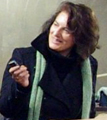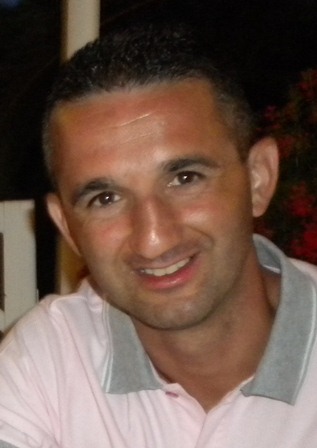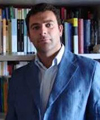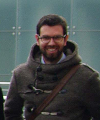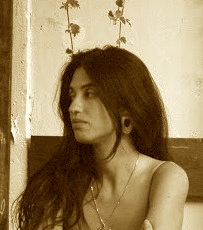Studying at the University of Verona
Here you can find information on the organisational aspects of the Programme, lecture timetables, learning activities and useful contact details for your time at the University, from enrolment to graduation.
Academic calendar
The academic calendar shows the deadlines and scheduled events that are relevant to students, teaching and technical-administrative staff of the University. Public holidays and University closures are also indicated. The academic year normally begins on 1 October each year and ends on 30 September of the following year.
Course calendar
The Academic Calendar sets out the degree programme lecture and exam timetables, as well as the relevant university closure dates..
| Period | From | To |
|---|---|---|
| semestrino IA | Oct 1, 2012 | Nov 21, 2012 |
| Semestrino IB | Nov 26, 2012 | Jan 23, 2013 |
| Semestrino IIA | Feb 25, 2013 | Apr 20, 2013 |
| Semestrino IIB | Apr 22, 2013 | Jun 7, 2013 |
| Session | From | To |
|---|---|---|
| Sessione invernale | Jan 24, 2013 | Feb 23, 2013 |
| Sessione estiva | Jun 10, 2013 | Jul 31, 2013 |
| Sessione autunnale | Sep 2, 2013 | Sep 28, 2013 |
| Session | From | To |
|---|---|---|
| Sessione estiva - I appello | Jun 20, 2013 | Jun 20, 2013 |
| Sessione estiva - II appello | Jul 11, 2013 | Jul 11, 2013 |
| Sessione autunnale - I appello | Oct 17, 2013 | Oct 17, 2013 |
| Sessione autunnale - II appello | Nov 21, 2013 | Nov 21, 2013 |
| Sessione invernale | Mar 20, 2014 | Mar 20, 2014 |
| Period | From | To |
|---|---|---|
| Festa di Ognissanti | Nov 1, 2012 | Nov 1, 2012 |
| Festa dell'Immacolata Concezione | Dec 8, 2012 | Dec 8, 2012 |
| Vacanze di Natale | Dec 21, 2012 | Jan 6, 2013 |
| Vacanze di Pasqua | Mar 29, 2013 | Apr 2, 2013 |
| Festa della Liberazione | Apr 25, 2013 | Apr 25, 2013 |
| Festa dei Lavoratori | May 1, 2013 | May 1, 2013 |
| Festa del Santo Patrono di Verona - San Zeno | May 21, 2013 | May 21, 2013 |
| Festa della Repubblica | Jun 2, 2013 | Jun 2, 2013 |
| Vacanze estive | Aug 9, 2013 | Aug 16, 2013 |
Exam calendar
Exam dates and rounds are managed by the relevant Culture and Civilisation Teaching and Student Services Unit.
To view all the exam sessions available, please use the Exam dashboard on ESSE3.
If you forgot your login details or have problems logging in, please contact the relevant IT HelpDesk, or check the login details recovery web page.
Should you have any doubts or questions, please check the Enrollment FAQs
Academic staff
Aldegheri Andrea
 andrea.aldegheri@univr.it
andrea.aldegheri@univr.it
 elisa.bellato@univr.it
elisa.bellato@univr.it
 maurizio.boscaini@univr.it
maurizio.boscaini@univr.it
 paolodalben@tin.it
paolodalben@tin.it
 ettore.deangeli@univr.it
ettore.deangeli@univr.it

Migliorati Lorenzo
 lorenzo.migliorati@univr.it
lorenzo.migliorati@univr.it
 045802 8135
045802 8135
 giuseppe.pernigo@univr.it
giuseppe.pernigo@univr.it
 alberto.scandola@univr.it
alberto.scandola@univr.it
Tani Stefano
 stefano.tani@univr.it
stefano.tani@univr.it
 +39 045802 8110
+39 045802 8110
 ivan.valbusa@univr.it
ivan.valbusa@univr.it
Study Plan
The Study Plan includes all modules, teaching and learning activities that each student will need to undertake during their time at the University.
Please select your Study Plan based on your enrollment year.
1° Year
| Modules | Credits | TAF | SSD |
|---|
2° Year activated in the A.Y. 2013/2014
| Modules | Credits | TAF | SSD |
|---|
Un insegnamento a scelta traSeconda lingua straniera competenza linguistica - liv. b1 (informatizzato)3° Year activated in the A.Y. 2014/2015
| Modules | Credits | TAF | SSD |
|---|
Un insegnamento a scelta traUn insegnamento a scelta tra| Modules | Credits | TAF | SSD |
|---|
| Modules | Credits | TAF | SSD |
|---|
Un insegnamento a scelta traSeconda lingua straniera competenza linguistica - liv. b1 (informatizzato)| Modules | Credits | TAF | SSD |
|---|
Un insegnamento a scelta traUn insegnamento a scelta traLegend | Type of training activity (TTA)
TAF (Type of Educational Activity) All courses and activities are classified into different types of educational activities, indicated by a letter.
Political philosophy SC (p) (2014/2015)
Teaching code
4S02210
Teacher
Coordinator
Credits
6
Language
Italian
Scientific Disciplinary Sector (SSD)
SPS/01 - POLITICAL PHILOSOPHY
Period
semestrino IA, Semestrino IB
Learning outcomes
Obiettivi formativi: The course aims at introducing and discussing some of the major issues concerning political philosophy, especially those related to the contemporary global challenges that interest this field of research.
Prerequisiti: Basic knowledge in the History of Philosophy
Program
Contenuto del corso: Understanding and Communicating Evil in the Age of Mass Communication: Arendt in Jerusalem.
The course will analyze Hannah Arendt’s famous reportage on the trial of the nazist criminal Adolph Eichmann, which took place in Jerusalem in 1961. Some key issues thematized will be: the nature of nazi totalitarianism (how was genocide prepared and realized, what had been the role of the civilian population, bureaucratization of the extermination, ‘banality’ of the executioners and so on); the role of international criminal justice (Nurnberg trial, issue of the crimes against humanity, anomaly of the Eichmann trial, human rights issue then and today, efficacy of international criminal justice today). Furthermore, the course aims at analyzing Arendt’s reportage as an example of ‘philosophical-political journalism’, highlighting the dilemmas inherent in the mass-mediatic communication of complex concepts. Audiovisual material will integrate the analysis of texts.
Testi in programma:
H. Arendt, La banalità del male. Eichmann a Gerusalemme, Milano, Feltrinelli 2001.
O. Guaraldo, Hannah Arendt, Collana Grandangolo, Milano, RCS libri 2013 (AVAILABLE ONLY online (also as e-book ) from the website:
http://store.corriere.it/saggistica/grandangolo/9sSsEWcVYekAAAFGeWkQp5Wp/ct
O. Guaraldo, (a cura di), Il Novecento di Hannah Arendt, Verona, ombre corte 2008.
S. Zappalà, La giustizia penale internazionale, Bologna, il Mulino 2005.
Films : Hannah Arendt, di M. Von Trotta, 2013.
Uno specialista, di Eyal Sivan, 1999.
Examination Methods
Written examination with open questions. There is the possibility to write an essay as substitute of the exam, but it has to be agreed upon with the Professor.
Type D and Type F activities
Modules not yet included
Career prospects
Module/Programme news
News for students
There you will find information, resources and services useful during your time at the University (Student’s exam record, your study plan on ESSE3, Distance Learning courses, university email account, office forms, administrative procedures, etc.). You can log into MyUnivr with your GIA login details: only in this way will you be able to receive notification of all the notices from your teachers and your secretariat via email and also via the Univr app.
Graduation
Documents
| Title | Info File |
|---|---|
|
|
pdf, it, 263 KB, 09/02/22 |
List of thesis proposals
| theses proposals | Research area |
|---|---|
| Laureandi Scienze della Comunicazione: vademecum | Various topics |
